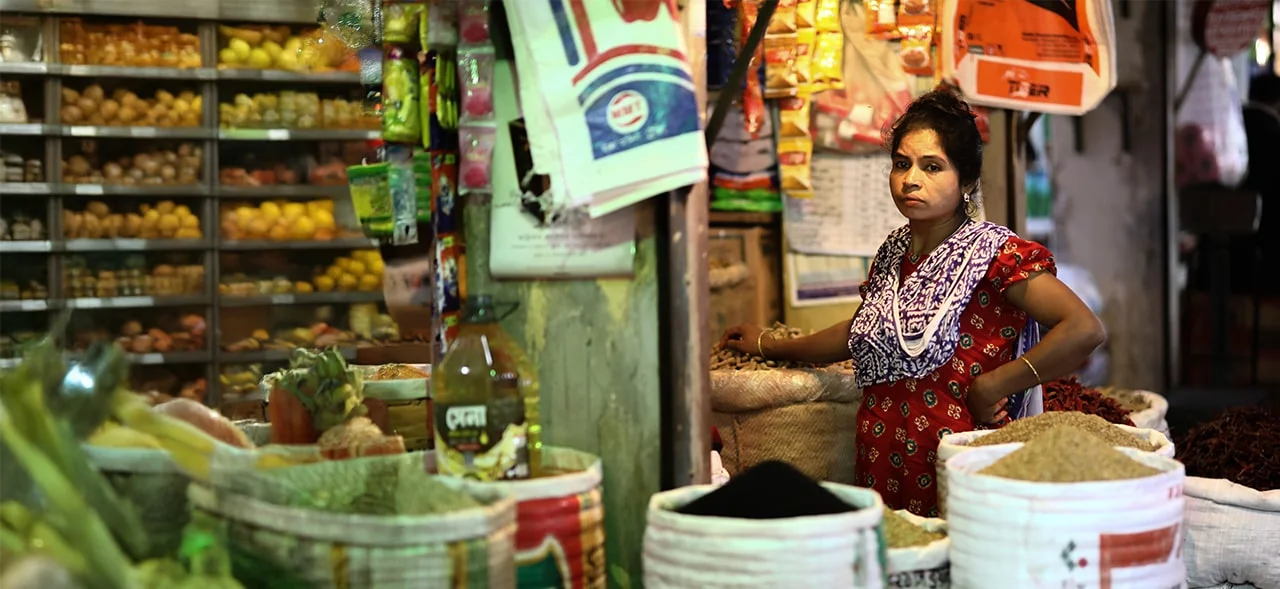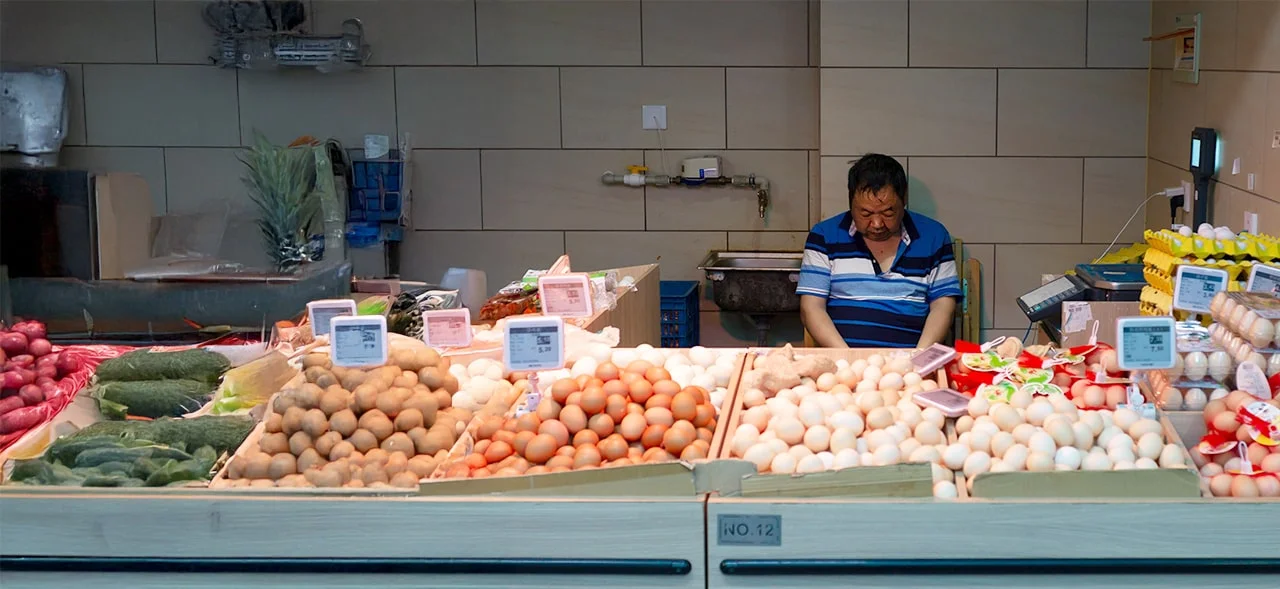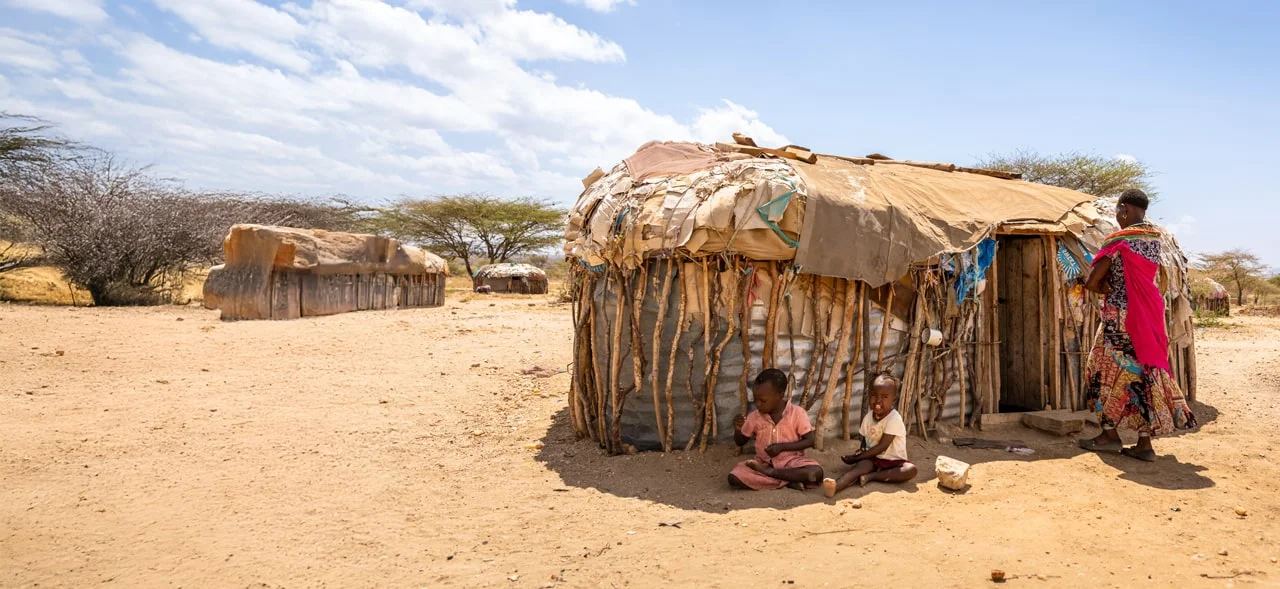
Despite contributing 25% of Bangladesh’s GDP and employing 7.8 million people, Cottage, Micro, Small, and Medium Enterprises (CMSMEs) face a USD 2.5 billion credit gap, particularly in rural areas. Women’s financial access also remains limited, restricting their participation in the formal economy.
To address these challenges, MSC, in collaboration with a2i, UNCDF, and Bangladesh Bank, launched FinLab Bangladesh, an accelerator program to bridge the financial gap for CMSMEs and empower women through inclusive fintech innovation.
MSC played a key role in designing and executing FinLab Bangladesh through the following efforts:
- We developed an inclusive accelerator to address CMSME finance and women’s financial inclusion challenges, selecting 8 high-potential startups from 123 applications.
- We provided mentorship and technical assistance, supporting startups with expert guidance, grants, and resources to scale their impact.
- We built an innovation ecosystem, enabling collaboration between fintechs, financial institutions, and regulators to develop solutions benefiting 100,000 female garment workers and 50,000 microenterprises.
We supported Mutual Trust Bank (MTB), Dana FinTech, and Apon Wellbeing Ltd. in expanding financial access through inclusive solutions. We partnered with Bangladesh Bank to align with regulatory and policy frameworks. We also facilitated investor and market linkages, connecting startups with funders, partners, and industry networks to drive growth.

With the Digital India initiative leveraging India Stack, fintechs have an unprecedented opportunity to design solutions that drive financial inclusion. However, MSC’s research highlights that fintechs require extensive support to innovate for low- and middle-income (LMI) segments—ensuring they deliver affordable, accessible, and diverse financial services at scale.
To bridge this gap, MSC, in partnership with IIMA Ventures, launched the Financial Inclusion Lab in India. The Lab enables fintechs to tap into the vast market opportunity while addressing systemic financial inclusion challenges through tailored support and collaboration with key ecosystem players.
MSC undertook the following exercises for this program:
- We defined program objectives, structured the accelerator framework, and established governance through advisory and steering committees.
- We curated startup cohorts, facilitated mentorship with industry leaders, and provided hands-on support in market research, product planning, and testing for market fit.
- We enabled strategic partnerships, offered technical assistance in business strategy and UI/UX, and helped startups refine business models to secure growth capital.
We incubated 49 startups, impacting over 45 million low- and middle-income customers. With our support, these startups have raised over USD 250 million in funding. Spanning fintech, skill-tech, and agtech, they collaborate with financial institutions to reshape India’s financial inclusion landscape.

Millions of farmers across India remain under-protected despite the availability of the Pradhan Mantri Fasal Bima Yojana (PMFBY), the country’s flagship crop insurance program. While designed to safeguard farmers against crop loss, the program struggled with low enrollment, especially among non-borrower farmers, due to operational inefficiencies, poor program design, and weak communication strategies. Many farmers find the process complex and opaque, with claim settlement delays that further erode trust. These systemic issues have limited the program’s potential to offer meaningful risk mitigation and financial security to India’s agricultural community.
MSC assessed the program and provided recommendations for improvement. We conducted an in-depth review across multiple states, which involved more than 500 stakeholder interviews with farmers, insurers, and government officials.
The team mapped the entire customer journey, identified design and operational pain points, and developed human-centric communication and process improvements. MSC’s recommendations included revamping digital touchpoints, simplifying claims processing, and enhancing awareness through targeted education. These were piloted in collaboration with Uttar Pradesh and Telangana state governments and a national insurer and later scaled up.
The initiative increased the coverage of gross cropped area from 23% to 30% and boosted participation from non-borrower farmers from 5% to 42%. Overall, the program covered more than 57 million farmers, and its visibility and credibility improved significantly.
The Government of India commissioned this project.

Micro, small, and medium enterprises (MSMEs) in the Philippines operate in one of the world’s most disaster-prone regions, yet most remain uninsured and financially vulnerable to climate shocks. Frequent typhoons and natural disasters disrupt business operations and often lead to prolonged recovery times or permanent closures. Traditional insurance products are either too costly or poorly aligned with the unique risks and cash flow patterns of MSMEs, which results in low uptake. The absence of affordable, accessible, and tailored risk protection leaves a critical gap in the country’s efforts to build enterprise resilience.
MSC was engaged to address the insurance gap for MSMEs by designing products that could protect them from disaster-related business disruptions.
MSC conducted detailed research with more than 180 MSMEs and facilitated dialogues with insurers and financial institutions to understand demand-side realities and supply-side readiness. Based on this, MSC developed a business interruption insurance concept tailored to the operational risks MSMEs face. MSC designed the product for affordability, with premium rates as low as PHP 900 per year (USD 18.56) for coverage up to USD 8578.25.
We promoted the product aggressively through Deutsche Gesellschaft für Internationale Zusammenarbeit (GIZ) and Department of Trade and Industry (DTI) the Philippines, with a target of 15,000 MSMEs, which included 2,000 MSMEs from Davao City alone. This intervention significantly boosted risk protection for MSMEs and encouraged enterprise resilience and sustainability amid climate volatility.
GIZ, the Department of Trade and Industry, and the Government of the Philippines commissioned the project.

India faces escalating climate- and disaster-related risks, yet vulnerable communities remain largely uninsured and financially exposed. Despite the presence of various public and private initiatives, risk-transfer mechanisms are fragmented, access to affordable insurance is limited, and coordination between policy frameworks, service providers, and community needs remains weak. These gaps undermine resilience and hinder the country’s ability to integrate inclusive insurance into broader development and climate strategies. The country needed a systematic and coordinated diagnosis to inform national priorities and unlock targeted investments through the Integrated National Financing Framework (INFF).
MSC led a comprehensive diagnostic study on inclusive insurance and risk finance in India. We assessed the enabling environment, identified market gaps, and recommended practical pathways for the integration of insurance into the INFF. This involved understanding community needs, supply-side constraints, and the role of insurance in mitigating climate and disaster risks.
MSC conducted wide-ranging stakeholder consultations with government agencies, which included the Ministry of Agriculture and the National Disaster Management Authority, insurance companies, and regulators. The team analyzed supply-demand dynamics, legislative frameworks, distribution mechanisms, and risk-transfer instruments across sectors.
The final report served as a foundational document to guide the UNDP’s future technical assistance programs under its Insurance and Risk Finance Facility (IRFF). It shaped national priorities and deepened the integration of insurance into India’s development agenda.
The United Nations Development Programme (UNDP) commissioned the project.

Ethiopia’s insurance sector faces critical capacity gaps that hinder its ability to grow and deliver inclusive financial protection. Without a coordinated approach to capability development, the sector remains ill-equipped to respond to emerging risks and market demands. Therefore, the sector needed a comprehensive and targeted capacity-building intervention.
MSC conducted a training needs assessment for Ethiopia’s insurance sector to support the establishment of a national center of excellence. The objective was to strengthen the skills and capabilities of insurance value chain players through the identification of the existing knowledge and capacity gaps that limit the sector’s growth and professionalism. These players included regulators, insurers, reinsurers, brokers, and training institutions.
MSC refined the IFC’s diagnostic tools, conducted primary and secondary research, and engaged 17 key institutions across the country. The assessment revealed major gaps in claims handling, underwriting, product innovation, and customer experience management. Further, MSC’s findings served as a foundation for the development of a tailored curriculum and informed the structure and focus of the upcoming center of excellence. This initiative was expected to enhance Ethiopia’s insurance sector’s long-term sustainability and performance by aligning capacity-building efforts with market needs.
The International Finance Corporation (IFC) and the Capital Financial Excellence Center (CaFEC) commissioned this project.





